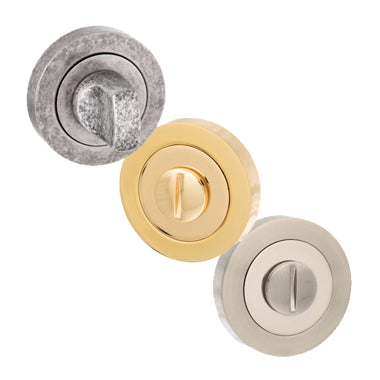Understanding Glazed and Glass Doors
Introduction to Door Types
Doors are not just entry points; they're style statements and functional features of any property. Among the plethora of door types, glazed and glass doors stand out for their aesthetics and functionality. Choosing the right door type is crucial; it's about matching design preferences with practical needs. Let's delve into what sets glazed and glass doors apart.
| Key Takeaways |
Description |
| Energy Efficiency |
Glazed doors offer superior insulation, leading to better energy efficiency and cost savings in the long term. |
| Privacy Options |
With options for frosted or tinted glass, glazed doors provide privacy without sacrificing natural light, offering more versatility than regular glass doors. |
| Soundproofing |
The insulating properties of glazed doors also contribute to sound reduction, making them ideal for creating a quieter home environment. |
| Safety and Security |
Both door types can be equipped with safety glass, but glazed doors often come with additional security features due to their more complex structure. |
| Aesthetic Versatility |
Glazed doors come in various designs and styles, from traditional to contemporary, allowing for greater aesthetic versatility to match any home décor. |
| FAQs & Common Concerns |
Glazed doors often have insulating properties due to the air or gas between the glass panes, making them more energy-efficient |
Defining Glazed Doors
Glazed doors are a beacon of light in design, literally. They incorporate glass windows or panels within their structure, creating a bridge between secluded spaces and the outside world. Whether it's the sleek lines of a
Contemporary glazed door or the charming panes of a French door, the glazing is pivotal. But it's not all about looks; there's more to these doors than meets the eye. Double glazing, for instance, isn't just two glass panes; it's a technological marvel designed to trap air or gas between the layers, providing insulation and noise reduction.
Defining Regular Glass Doors
In contrast, regular glass doors are the epitome of clarity and simplicity. They are usually a single pane of glass, offering an unobstructed view and inviting open spaces into your home. Ideal for the rear of the house, these doors prioritise light and view over insulation, making them perfect for those looking to create a seamless indoor-outdoor flow. Yet, they can be energy-efficient too, especially when opting for double-glazed options.
Appearance and Aesthetic Impact
Glazed and regular glass doors differ significantly in appearance. Glazed doors can be likened to a canvas, where glass is artfully framed by wood, metal, or composite materials. They offer a myriad of designs, from minimalist single panels to elaborate stained glass. Regular glass doors, on the other hand, are often uninterrupted glass panes, exuding modernity and simplicity.
Here's a table comparing the aesthetic impact of both door types:
| Feature |
Glazed Doors |
Regular Glass Doors |
| Design Variety |
Wide range of styles and patterns |
Typically minimalist |
| Light Transmission |
Can vary based on glazing type |
Maximises natural light |
| Privacy |
Options for tinted or frosted glass |
Often clear, but can be customised |
| Integration with Decor |
Versatile, matches many styles |
Modern, sleek look |
Glazed doors can transform the feel of a space, allowing light to filter through without compromising on style. Regular glass doors, while more limited in design, offer a sense of openness and continuity that's hard to beat.
Functional Differences and Considerations
Insulation and Energy Efficiency
Glazed doors are the unsung heroes of energy efficiency. They function as thermal barriers, thanks to the air or argon gas trapped between panes, reducing heat transfer and slashing energy bills. Regular glass doors can't compete with the insulating prowess of a well-made glazed door, which keeps your space snug in winter and cool in summer. But the innovation doesn't stop there. Low-emissivity coatings and tight seals contribute to the superior performance of glazed doors, making them a smart choice for eco-conscious homeowners.
Privacy and Light Transmission
- Glazed doors: Offer a compromise between privacy and natural light, with options like frosted, tinted, or patterned glass.
- Regular glass doors: Typically clear, but can be customised with films or coatings for added privacy.
- Natural light: Both door types excel in inviting daylight into your home, but glazed doors give more control over the balance.
- Design integration: Glazed doors can be tailored to suit any privacy level without sacrificing style.
- Versatility: Whether it's a bathroom door or a front door, there's a glazed option to offer the right amount of seclusion.
Glazed doors let you play with light and shadow, crafting an ambiance that's both welcoming and private. Meanwhile, regular glass doors are all about transparency, celebrating the blurring of indoor and outdoor boundaries.
Soundproofing Capabilities
The acoustic insulation of glazed doors is another feather in their cap. The air or gas between the glass panes acts as a sound buffer, turning your home into a peaceful retreat. Regular glass doors, while not inherently soundproof, can also be upgraded with special acoustic glass to dampen unwanted noise, keeping the hustle and bustle of the outside world at bay.
Safety and Security Features
The strength and security of a door are paramount. Glazed doors often feature toughened or laminated glass, resistant to impacts and potential intruders. Regular glass doors can be just as robust, provided they're fitted with similar safety glass. It's a common misconception that glass doors are a security risk. In fact, with modern advancements, they can be as secure as any solid door, especially when reinforced with secure frames and locks.
Cost Analysis
When it comes to cost, glazed doors tend to be pricier than their regular glass counterparts. This is due to the additional materials and technology involved in their construction. However, this initial investment can pay off in the long run through energy savings and increased property value. It's a case of weighing upfront costs against long-term benefits.
In conclusion, the choice between glazed and regular glass doors hinges on your specific needs and preferences. If energy efficiency, noise reduction, and versatile privacy are high on your list, glazed doors are a compelling choice. For those who prioritise uninterrupted views and a modern aesthetic, regular glass doors might be the way to go. Whichever you choose, ensure it aligns with the architecture of your home and your lifestyle.
Practical Aspects and Installation
Installation Process
Installing a door is a task that can significantly alter the look and feel of your home. Glazed doors, with their additional components and sealing requirements, may present a more complex installation process compared to regular glass doors. It’s important to consider factors like frame alignment, proper sealing, and ensuring that the glazing is secure and effective.
For those who are not seasoned DIY enthusiasts, professional installation is recommended to avoid any potential issues that could affect the door's performance. Whether it's a sophisticated
bespoke door or a standard off-the-shelf model, correct installation is key to the door's longevity and function.
Maintenance and Durability
The longevity of your door is a testament to its quality. Regular maintenance can ensure that both glazed and regular glass doors stand the test of time. Glazed doors may require checks to ensure the seals remain intact and the insulating gas hasn’t escaped. Regular glass doors, while simpler in construction, still benefit from periodic cleaning and hardware checks to maintain their clarity and function.
Cost Analysis
The cost of a door extends beyond its price tag; it encompasses installation, maintenance, and potential energy savings. Here's a table summarising these cost factors:
| Factor |
Glazed Doors |
Regular Glass Doors |
| Initial Cost |
Higher due to technology and materials |
Generally lower |
| Installation |
Potentially higher; often requires professionals |
More DIY-friendly; lower professional installation costs |
| Maintenance |
Regular sealing checks; potential for more complex repairs |
Simpler maintenance; primarily cleaning |
| Energy Savings |
Can offset initial costs over time |
Less insulation; lower potential for energy savings |
When considering cost, factor in not just the immediate expenses, but the long-term implications of your choice.
Conclusion and Recommendations
In wrapping up, it's clear that both glazed and regular glass doors have their unique advantages and considerations. Glazed doors offer a blend of aesthetics, energy efficiency, and versatility, making them a worthy investment for many homeowners. Regular glass doors, with their straightforward elegance, can open up a space and create a seamless transition to the outdoors.
Consider your lifestyle, the climate you live in, and the architectural style of your property when making your choice. If you're looking for something that blends classic charm with modern efficiency, a
Victorian style glazed door might just be the perfect fit. Whatever your preference, ensure it’s a door that you will be happy to walk through day after day.
FAQs
What are the main differences between glazed and regular glass doors?
Glazed doors feature glass panels with additional materials for framing and insulation, while regular glass doors typically have a single glass pane without such framing or insulation.
Are glazed doors more energy-efficient than regular glass doors?
Yes, glazed doors often have insulating properties due to the air or gas between the glass panes, making them more energy-efficient than single-pane regular glass doors.
Can glazed doors provide the same level of privacy as regular doors?
Glazed doors can offer various levels of privacy through frosted, tinted, or patterned glass, whereas regular glass doors may require additional treatments for privacy.
Is the installation process for glazed doors more complex than for regular glass doors?
Generally, glazed doors require a more meticulous installation process to ensure proper sealing and insulation, which may mean professional installation is advisable.
Do glazed doors require more maintenance than regular glass doors?
Glazed doors may require checks to ensure their seals and insulating properties are maintained, whereas regular glass doors mainly need regular cleaning.


































































































































